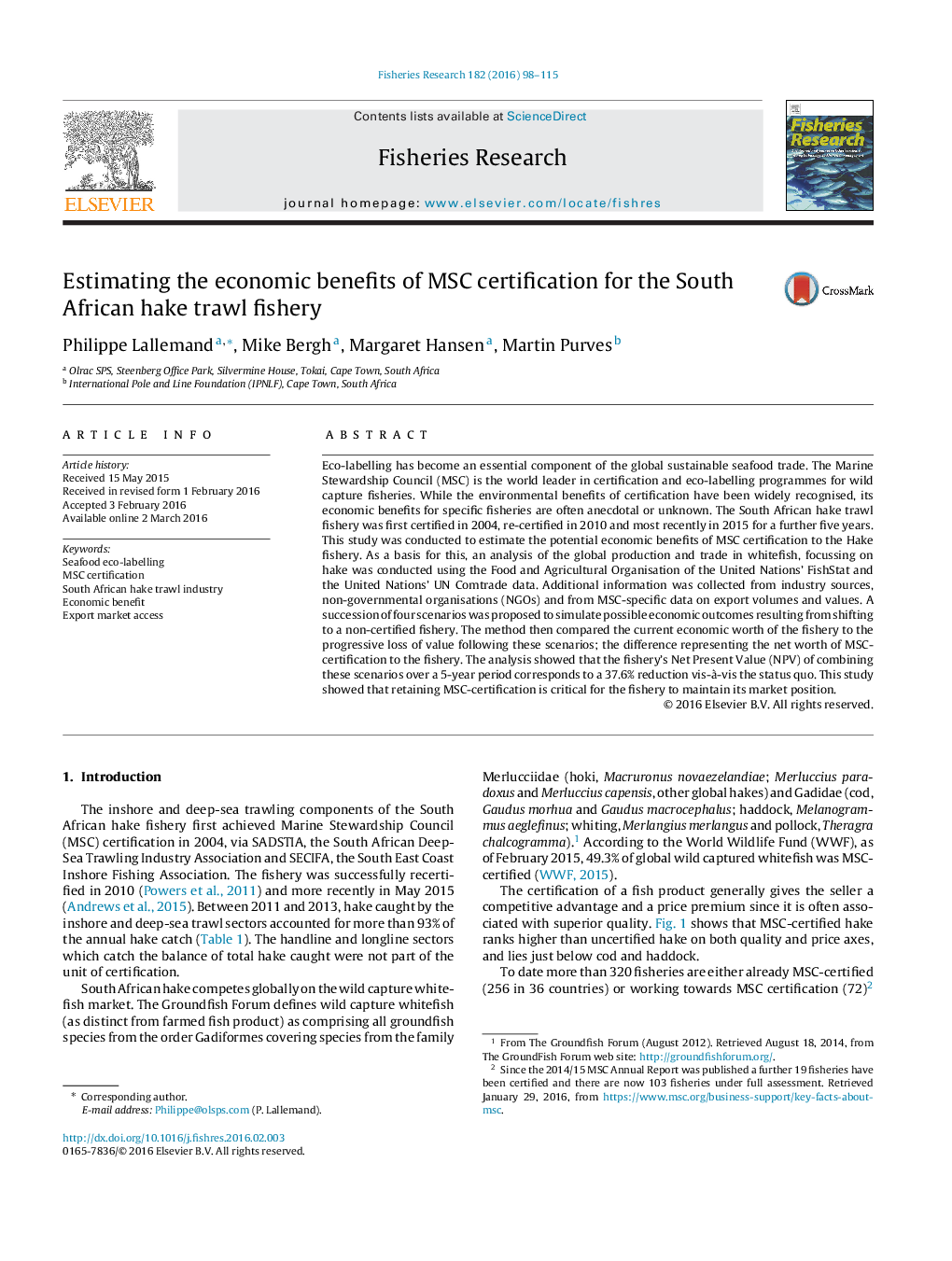| Article ID | Journal | Published Year | Pages | File Type |
|---|---|---|---|---|
| 4542671 | Fisheries Research | 2016 | 18 Pages |
Eco-labelling has become an essential component of the global sustainable seafood trade. The Marine Stewardship Council (MSC) is the world leader in certification and eco-labelling programmes for wild capture fisheries. While the environmental benefits of certification have been widely recognised, its economic benefits for specific fisheries are often anecdotal or unknown. The South African hake trawl fishery was first certified in 2004, re-certified in 2010 and most recently in 2015 for a further five years. This study was conducted to estimate the potential economic benefits of MSC certification to the Hake fishery. As a basis for this, an analysis of the global production and trade in whitefish, focussing on hake was conducted using the Food and Agricultural Organisation of the United Nations’ FishStat and the United Nations’ UN Comtrade data. Additional information was collected from industry sources, non-governmental organisations (NGOs) and from MSC-specific data on export volumes and values. A succession of four scenarios was proposed to simulate possible economic outcomes resulting from shifting to a non-certified fishery. The method then compared the current economic worth of the fishery to the progressive loss of value following these scenarios; the difference representing the net worth of MSC-certification to the fishery. The analysis showed that the fishery’s Net Present Value (NPV) of combining these scenarios over a 5-year period corresponds to a 37.6% reduction vis-à-vis the status quo. This study showed that retaining MSC-certification is critical for the fishery to maintain its market position.
